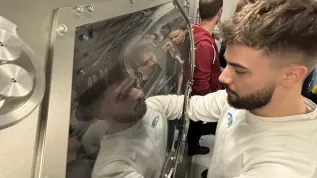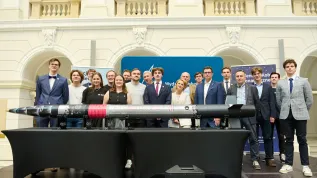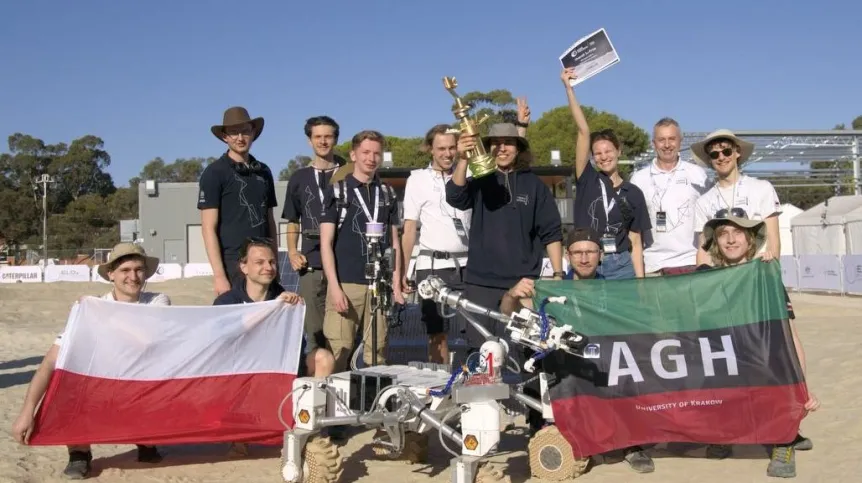
AGH Space Systems team from the AGH University of Science and Technology in Kraków won the international robotics competition Australian Rover Challenge 2025 (ARCh), the university reports. Students from all over the world took part in a simulated lunar mission, using rovers that they had designed and built themselves.
'The win of AGH Space Systems in the Australian Rover Challenge 2025 is another milestone in the history of Polish space technology. The team's success not only translates to the recognition of outstanding skills of AGH University students, but is also an example of innovativeness that may inspire future generations of engineers and scientists', emphasises Professor Jerzy Lis, AGH University Rector.
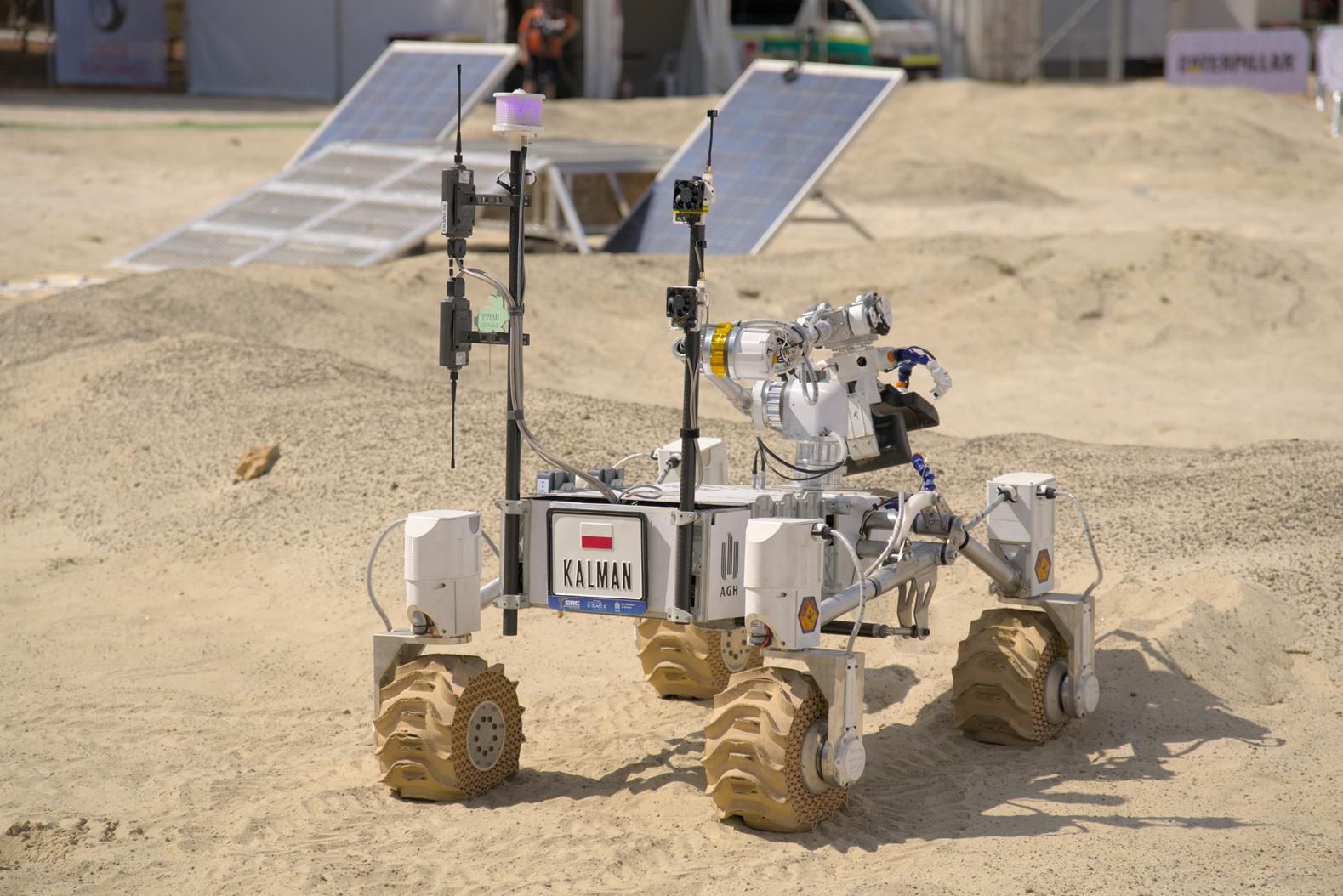
The students admit that the competition was an unprecedented challenge, and the competition tasks within the often required the use of a completely new set of skills, both of the rover and operators. The another planetary rover built by AGH Space Systems - Kalman - also took part in the international competition.
'Before the results were announced, we faced the Mapping & Autonomous Task competition. It was a very important competition for us, because the day before we were head to head with the UQ Space team (University of Queensland - ed. PAP), which had only 4 points of advantage over us. However, today's tasks were decisive for our victory. Kalman located and identified all placards and cubes', the AGH Space System team members report.
This is yet another success of the Kraków team. In June 2024, AGH Space Systems and Kalman took the highest place on the podium of the University Rover Challenge in the US.
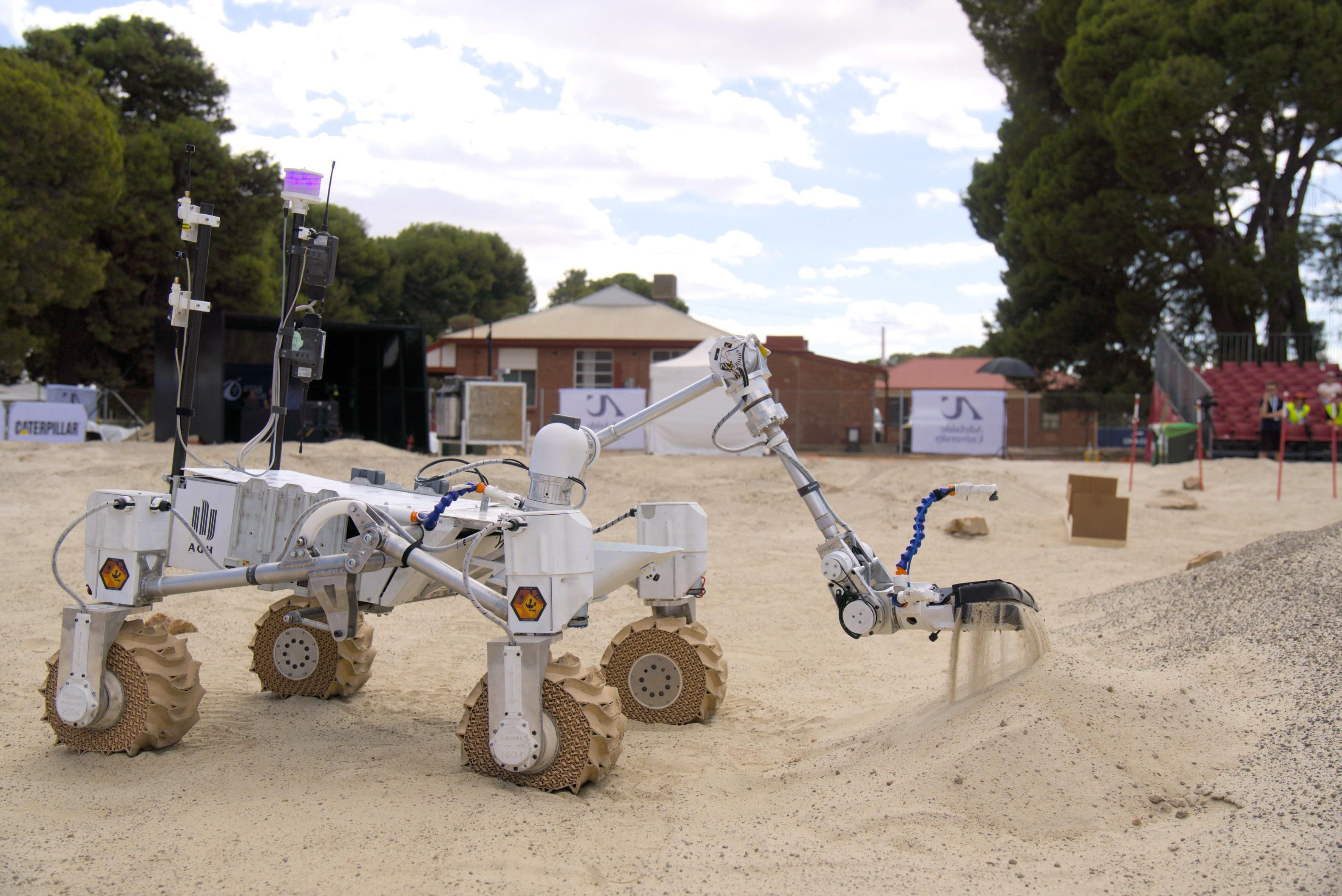
The Australian Rover Challenge is an annual robotics competition organised by the University of Adelaide. University students from around the globe compete in a simulated lunar mission. The competition involves a range of tasks related to navigation, extraction of resources, and construction of infrastructure on a simulated lunar surface, with the aim of testing participants' skills in robotic and autonomous technologies. (PAP)
juka/ agt/

